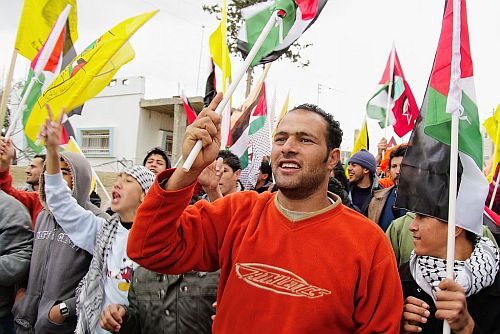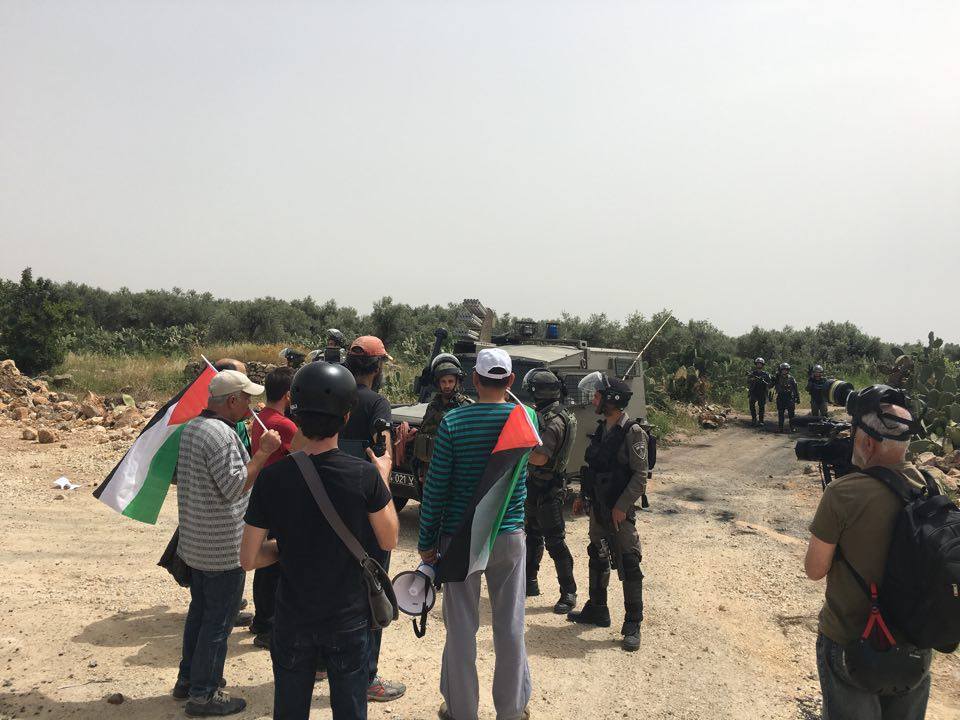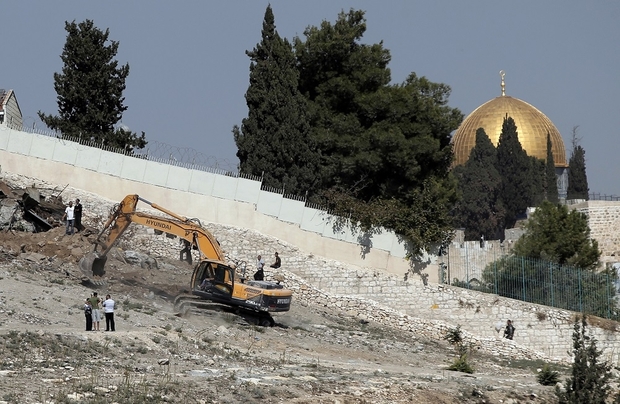-
Bi’lin Protest on the anniversary of the death of Bassam Abu Rahma
17th April 2016 | International Solidarity Movement, al-Khalil team | Bi’lin, occupied Palestine This Friday 15th April, the village of Bi’lin held their long-running protest against the illegal Israeli occupation and Apartheid wall. However, the protest on this day was tinged with further sadness, falling as it did on the seven-year anniversary of the death […]
-
Non-violent protest in Ni’lin again met with collective punishment against whole village
12th April 2016 | International Solidarity Movement, al-Khalil team | Ni’lin, occupied Palestine On Friday, the 8th of April 2016, the villagers of Ni’lin nonviolently demonstrated against Israeli apartheid politics, the theft of the villagers land through the building of the apartheid wall and illegal settlements, and the increasing collective punishment of the village of […]
-
Press release: Last day of demolition order leaves Palestinian family in Wadi al-Joz in fear of losing their home
10th April 2016 | International Solidarity Movement, al-Khalil Team | Jerusalem, occupied Palestine The 10th of April is the last day of the demolition order on the home of the Totanji family. The family lives in the Sawaneh district in Wadi al-Joz, a village in East Jerusalem near the Old City, which Israel has declared […]
Action Alert An Nabi Saleh Apartheid Wall Arrests BDS Bethlehem Bil'in Cast Lead Demonstration Denial of Entry Ethnic Cleansing Farmers Gaza Global Actions Hebron House Demolition International law Israeli Army Jerusalem Live Ammunition Nablus Ni'lin Prisoner Ramallah Rubber-coated steel bullets Settlement Settlers Settler violence Tear-Gas Canister Video



